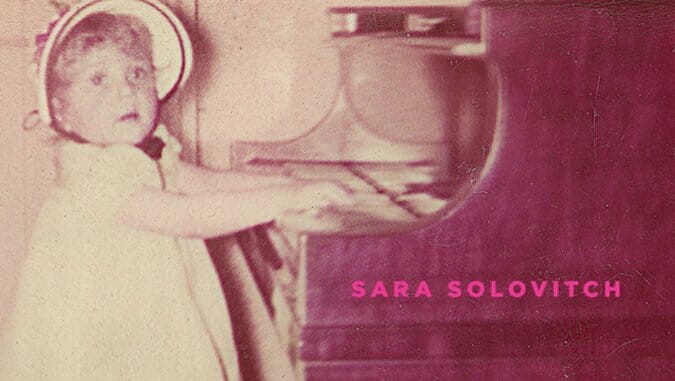Playing Scared: A History and Memoir of Stage Fright by Sara Solovitch

“Breathe, I told myself. It was such an easy thing to forget.”
Imagine reading this review out loud, word for word, into a microphone. Then imagine you’re in front of an audience with hundreds of strangers hanging on your every word.
No big deal? Or is paralysis creeping upon you at the mere thought?
Studies show that 74 percent of you are afraid to speak or perform in public. This “performance anxiety” is a confounding phenomena that seems as ubiquitous as the common cold; “an act of mutiny by the mind against the body,” as described by author Sara Solovitch.
 Solovitch would know a thing or two about stage fright. She’s played the piano since her earliest days (that’s her on Playing Scared’s cover), and by age 10 she was already comfortable with Bach and Mozart in her music lessons. Comfortable performing? That was another question. She attended the Eastman School of Music, hopeful for a career in music. Then came her hometown’s annual music festival, something she’d been putting off from for a few years until she was 14, with her piano teacher finally insisting she was ready for a more serious competition. “There was a blur of faces, all aimed in my direction…I became aware that my knees were knocking and my feet were shaking…”
Solovitch would know a thing or two about stage fright. She’s played the piano since her earliest days (that’s her on Playing Scared’s cover), and by age 10 she was already comfortable with Bach and Mozart in her music lessons. Comfortable performing? That was another question. She attended the Eastman School of Music, hopeful for a career in music. Then came her hometown’s annual music festival, something she’d been putting off from for a few years until she was 14, with her piano teacher finally insisting she was ready for a more serious competition. “There was a blur of faces, all aimed in my direction…I became aware that my knees were knocking and my feet were shaking…”
-

-

-

-

-

-

-

-

-

-

-

-

-

-

-

-

-

-

-

-

-

-

-

-

-

-

-

-

-

-

-

-

-

-

-

-

-

-

-

-








































